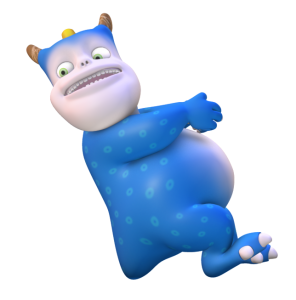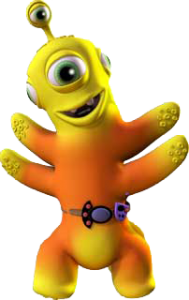The Planet Earthlings project is merging the functionality of a 3D Virtual World (initially on 2D screens for wide accessibility) and a Social Network into a gamified educational destination with the central goal of empowering young people by making learning fun, coopeartive and collaborative. It’s called “Zarbul,” the intergalactic word for the universe. Zarbul is space themed and has an overall story to excite and reward players giving them an opportunity to have fun while learning.
If you’re interested in joining the discussion and helping revolutionize education please joing the new Zarbul social network at http://www.zarbul.com.

Players will create an alien avatar, assemble a spaceship and set down on their own planet ready build their own civilization, explore the universe and save Earth. Planets will include multimedia content, educational mini-games, user created content and offline activities to encourage real world experiences which can then be shared in the online world.
In the first version of the universe we are integrating creative commons content from Khan Academy. Players can create virtual study groups, watch videos together and through chat help each other learn. They will also be able to access a tutor database to expand educational opportunities both individually and using the system in schools. Collecting commissions for tutoring charges is the first of our three main revenue streams for the virtual world.
Each planet will also include educational mini-games. These games will be expanded into premium mobile games for Android and iOS for our second revenue stream. This model allows the virtual world to promote the mobile games and vice-versa. We can also partner with 3rd party game developers to create games for the universe on a revenue sharing basis.
The universe will expand both through various phases of core development and by an open source system which will allow others with compatible content to collaborate and create their own worlds. We see this as a third revenue stream with both organizations and companies paying to being part of Zarbul. For example MIT might create a programming planet revolving around their open source Scratch platform or Unity3D could create a game development planet.
Jumping into their spaceship young explorers set down on different planets and encounter four major activities:
- Educational Content – text, images, animation and video content will connect all activities so they can learn about anything wherever they are.
- Cooperative Gaming – multi-player games will unite kids to help each overcome challenges, learn and grow.
- Collaborative Apps – bringing groups of users together to create art, stories, music, movies, animation, apps, games, and more.
- Community Tools – to help everyone communicate, learn about each other, make friends and take part in real-life community activities.
The virtual world Proof-of-Concept is ready and we plan on beginning testing with a limited group of individual players and some local schools soon.


